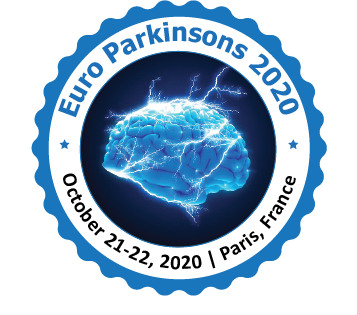6th Global Experts Meeting on Parkinsons and Movement Disorders
Paris, France
Sailaxmi Gandhi
National Institute of Mental Health and Neurosciences, India
Title: Challenges initiating & supporting vocational training for persons suffering mental illness in India
Biography
Biography: Sailaxmi Gandhi
Abstract
The National Mental Health Survey (2014-2016), one of the largest mental health “Research and Action” oriented study undertaken in recent times across 12 states of India reported a high weighted lifetime prevalence of 5.25 in depressive disorders and 1.41 in severe mental illness (n=34802). The WHO also states that by the year 2020, Depression will be the most prevalent condition in the world. With this high rise in NCDs (Non-communicable diseases), a large proportion of people with mental illness also have co-existing medical conditions such as obesity, diabetes mellitus, hypertension, etc. adding the disability. In this background, there exists a high level of stigma towards this illness. Individuals with mental illness recover better with lesser relapse rates when they are engaged in work. Symptoms, medications side effects and other skills deficits such as cognitive/social/assertive/communication skills can interfere with getting and maintaining a job. At a premier mental health institute in South India, a nurse-led initiative in a multi-disciplinary team (MDT) faced several challenges in initiating and maintaining a vocation training café named as the ROSes Café (Recovery Oriented Services). A caregiver who trained persons with mental illness (supervised by the MDT) in various stages commencing with cleaning vegetables, dishes, etc. and going up to account management operated the café. Interested persons with mental illness were invited to be part of this venture. Initial grading was done based on their competencies. Behavioral strategies such as re-enforcement were used as part of the training process. Challenged faced were many ranging from getting space, an instructor, administrative support, funding, etc. The onus was the instructor’s (caregiver) and the team’s satisfaction, placement of the recovering individuals and increasing popularity of this venture.

